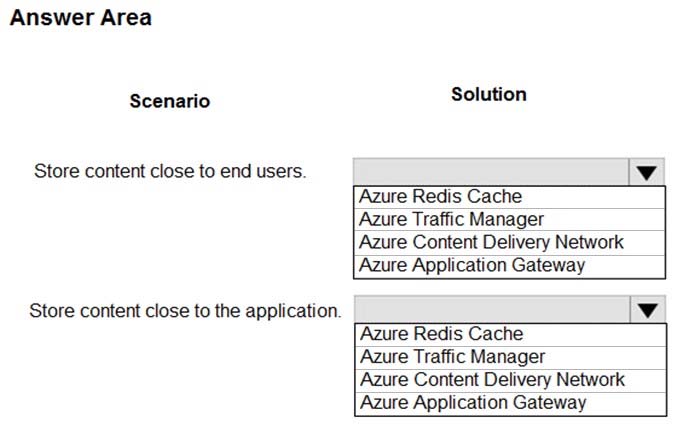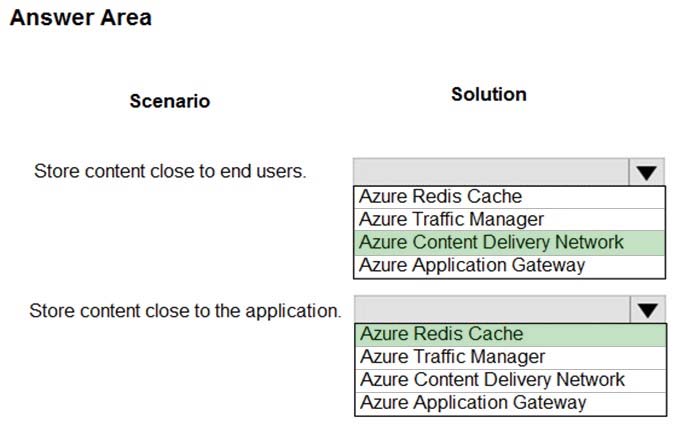Question 128 of 231 from exam AZ-301: Microsoft Azure Architect Design
Question
HOTSPOT -
Your company deploys an Azure App Service Web App.
During testing the application fails under load. The application cannot handle more than 100 concurrent user sessions. You enable the Always On feature. You also configure auto-scaling to increase counts from two to 10 based on HTTP queue length.
You need to improve the performance of the application.
Which solution should you use for each application scenario? To answer, select the appropriate options in the answer area.
NOTE: Each correct selection is worth one point.
Hot Area:

Explanations

Box 1: Content Delivery Network -
A content delivery network (CDN) is a distributed network of servers that can efficiently deliver web content to users. CDNs store cached content on edge servers in point-of-presence (POP) locations that are close to end users, to minimize latency.
Azure Content Delivery Network (CDN) offers developers a global solution for rapidly delivering high-bandwidth content to users by caching their content at strategically placed physical nodes across the world. Azure CDN can also accelerate dynamic content, which cannot be cached, by leveraging various network optimizations using CDN POPs. For example, route optimization to bypass Border Gateway Protocol (BGP).
Box 2: Azure Redis Cache -
Azure Cache for Redis is based on the popular software Redis. It is typically used as a cache to improve the performance and scalability of systems that rely heavily on backend data-stores. Performance is improved by temporarily copying frequently accessed data to fast storage located close to the application. With
Azure Cache for Redis, this fast storage is located in-memory with Azure Cache for Redis instead of being loaded from disk by a database.
https://docs.microsoft.com/en-us/azure/azure-cache-for-redis/cache-overview